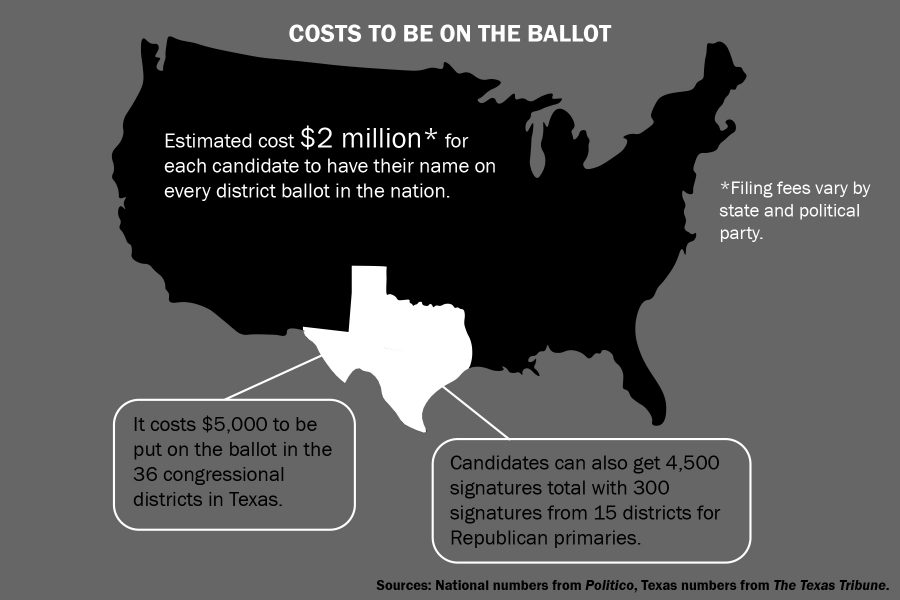It’s the most wonderful time of the year: filing season for the presidential candidates. The Texas primary may not be until March of next year, but both major parties in Texas are feeling especially greedy this season by asking their candidates to pay up or pass on Texas’ primary delegates.
For Republicans, candidates have two options: either pay $5,000 or gather at least 300 signatures each from 15 of Texas’ 36 congressional districts. (That is, 4,500 signatures altogether.) But $5,000 is a bargain compared to many other states. Gaining access to Alabama’s ballot costs $10,000 and South Carolina’s is a whopping $40,000. By the end of the primary process, it’s estimated that it will cost candidates about $2 million to have their name on every ballot.
For the richest of the candidates, such as billionaire Donald Trump, there will be no problem gaining access. But cash-strapped candidates, such as Sen. Rand Paul (R-Ky.), who has only $2.1 million cash on hand, will either have to pick and choose the most important primary contests or raise more money.
The second option might prove easier for financially burdened candidates since Paul will likely not have trouble finding more than 4,500 voters in Texas who want him on the ballot. However, for candidates like Sen. Lindsey Graham (R-S.C.) and former Virginia Gov. Jim Gilmore, it’s hard enough finding one supporter nationally let alone 4,500 in the state of Texas.
Meanwhile, the Democratic Party gives their candidates a slightly better bargain. For just $2,500 or 500 signatures, any candidate can get their name on the ballot. But $2,500 is still too much.
Gaining access to the primary ballot in Texas and every other state should not cost candidates a single dollar. By doing so, state party leaders are taking away one of the most important decisions the voters make: deciding who has the opportunity to be the next president.
The requirements to become president are simple according to the constitution: he or she must be at least 35 years old, be a natural born citizen and have lived in the country for at least 14 years. However, there might as well be an asterisk at the end saying “some restrictions may apply” because unless the candidate is wealthy or well-connected, party leaders aren’t interested.
The greatest gift party leaders can give this holiday season is to even the playing field and remove the filing fee so that voters are given every possible option.
Poludniak is an international relations and global studies sophomore from San Antonio. Follow him on Twitter @DerekPoludniak.





















